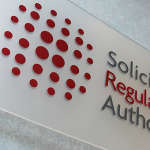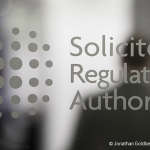The Solicitors Regulation Authority (SRA) has been criticised in a Legal Services Board (LSB) report for its failures in its enforcement work and its IT systems, as part of a wider review of legal regulators.
The LSB this week released its report: ‘Regulatory Standards 2015/16: A thematic report on the performance of legal services regulators’, which covers eight legal services regulators – the Bar Standards Board, CILEx Regulation, Costs Lawyers Standards Board, Council for Licensed Conveyancers, Institute of Chartered Accountants, Intellectual Property Regulation Board and the Master of the Faculties.
In its accompanying report on the SRA, the regulator found the SRA to be ‘satisfactory’, the second-highest rating it uses, in only one category – risk assessment. In all other areas – outcomes focused regulation, supervision, enforcement, capability and capacity – it was said to be ‘undertaking improvement and work is well under way’ – the third of the five grades.
According to the report, while the SRA has been criticised in the past about the number of open cases it had and the length of time it took to send cases to the Solicitors Disciplinary Tribunal, some progress had been made.
However the LSB said: ‘The SRA still has some work to do before it can be considered “satisfactory” in this area. This includes working towards introducing the civil standard of proof for all appeal processes and making improvements to the quality of its enforcement work.’
The report reiterated a priority area for the SRA has to be the implementation of a new IT system which it shares with the Law Society. While a new system had been developed, the regulator has halted its implementation and started over again.
The report said: ‘We continue to view the development of an effective IT solution for the SRA’s operational work as a priority for the SRA. We are aware that the SRA recognises this too.’
A further priority, in the LSB’s view, was the transparency of SRA board activities, as the KPI dashboard reviewed by the board at each meeting is not published.
‘In our discussions with the SRA, it said that there was no cultural resistance to publishing more information and to being more transparent about costs, budgets and KPIs but that this was not a priority at the moment. Transparency about performance is vital to demonstrating that management and governance processes are working.’
SRA chief executive Paul Phillip said: ‘We know there is more to do and we are not complacent. For example, we share the LSB frustration at the slow development of appropriate IT systems and continue to work with the Law Society to address this.’
In its review, the LSB indicated its support for government plans to make legal services regulators independent from their representative arms. It said the lack of independence is ‘fostering complex governance arrangements to manage relationships between regulatory and representative functions which do not achieve full independence of regulation and which distract senior management attention on both sides from regulatory and representative matters respectively.’
victoria.young@legalease.co.uk
For more on regulation in the City read: Taxation without representation – would you pay for the Law Society to represent you?











